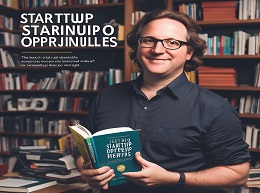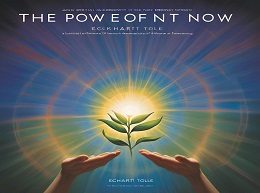Do Cool Sh*t: Quit Your Day Job, Start Your Own Business, and Live Happily Ever After

"Do Cool Sh*t": A Guide to Quitting Your Job and Starting A Business
In "Do Cool Sh*t: Quit Your Day Job, Start Your Own Business, and Live Happily Ever After," Miki Agrawal provides a refreshing and candid roadmap for aspiring entrepreneurs. Agrawal’s personal journey from discontented corporate employee to successful entrepreneur is both inspiring and practical, filled with actionable advice, real-world examples, and motivational anecdotes. This review explores the key themes of the book, highlighting how Agrawal's approach can help you break free from the conventional 9-to-5 grind and embark on a fulfilling entrepreneurial adventure.
The Courage to Take the Leap
Miki Agrawal opens "Do Cool Sh*t" with a compelling narrative about her dissatisfaction with her corporate job and her burning desire to create something meaningful. Her story resonates with many who feel trapped in unfulfilling careers and dream of starting their own businesses. Agrawal’s message is clear: it’s possible to turn your passion into a profitable venture, and she provides the blueprint to do so.
Example: Agrawal shares how she transitioned from her job in investment banking to founding Wild, a farm-to-table pizza restaurant in New York City. Her journey was not without challenges, but her determination and innovative approach led to success.
Discovering What Excites You
One of the first steps Agrawal discusses is identifying what truly excites you. She emphasizes the importance of introspection and exploring different interests to find your passion. Agrawal believes that passion is the driving force behind any successful entrepreneurial venture.
Example: Agrawal recounts her exploration of various fields, from finance to filmmaking, before discovering her passion for food and wellness. This exploration phase is crucial for uncovering what you’re genuinely passionate about.
Aligning Passion with Market Needs
Agrawal also highlights the importance of aligning your passion with market needs. She advises aspiring entrepreneurs to research and understand their target audience to ensure there is a demand for their product or service.
Example: Before launching Wild, Agrawal conducted extensive market research to understand the demand for healthy, gluten-free dining options in New York City. This research validated her idea and helped her refine her business concept.
Crafting a Solid Business Plan
Agrawal emphasizes the need for a solid business plan. A well-thought-out plan provides direction and helps secure funding from investors. She breaks down the components of a successful business plan, including market analysis, financial projections, and marketing strategies.
Example: Agrawal's detailed business plan for Wild included a unique value proposition, competitive analysis, and a comprehensive marketing strategy, which impressed potential investors and helped secure initial funding.
Embracing the Lean Startup Methodology
Agrawal advocates for the lean startup methodology, which encourages entrepreneurs to start small, test their ideas, and iterate based on feedback. This approach minimizes risk and allows for quick adjustments.
Example: Agrawal started Wild with a pop-up restaurant to test her concept and gather feedback from customers. This lean approach allowed her to refine her menu and service based on real-world insights before opening a permanent location.
Navigating Financial Hurdles
One of the biggest challenges new entrepreneurs face is securing funding. Agrawal provides practical tips for raising capital, from pitching to investors to leveraging crowdfunding platforms.
Example: Agrawal successfully used Kickstarter to raise funds for Wild. Her engaging and authentic pitch resonated with backers, helping her exceed her funding goal.
Dealing with Self-Doubt and Fear
Agrawal addresses the psychological barriers that often hold aspiring entrepreneurs back, such as self-doubt and fear of failure. She shares strategies for building resilience and maintaining a positive mindset.
Example: Throughout her entrepreneurial journey, Agrawal faced numerous setbacks, but her perseverance and ability to learn from failures kept her moving forward. She encourages readers to view failures as learning opportunities.
Hiring for Culture Fit
Agrawal stresses the importance of hiring team members who align with your company’s values and culture. A strong, cohesive team is essential for long-term success.
Example: At Wild, Agrawal prioritized hiring employees who were passionate about healthy living and shared her commitment to sustainability. This cultural alignment created a motivated and dedicated team.
Empowering and Inspiring Employees
Effective leadership involves empowering and inspiring your team. Agrawal shares her leadership philosophy, which includes fostering a collaborative environment, providing opportunities for growth, and recognizing achievements.
Example: Agrawal implemented regular team-building activities and provided professional development opportunities at Wild. These initiatives boosted morale and increased employee engagement.
Creating a Strong Brand Identity
Agrawal discusses the importance of creating a strong brand identity that resonates with your target audience. She offers tips on developing a compelling brand story and visual identity.
Example: Wild’s brand identity focused on health, sustainability, and community. Agrawal’s authentic storytelling and visually appealing branding helped Wild stand out in a crowded market.
Leveraging Social Media
In the digital age, social media is a powerful tool for marketing and brand building. Agrawal shares strategies for leveraging social media to connect with customers, build brand awareness, and drive sales.
Example: Agrawal used Instagram to share behind-the-scenes content, customer testimonials, and visually stunning images of Wild’s dishes. This social media strategy helped build a loyal following and attract new customers.
Finding Personal Fulfillment
Agrawal emphasizes the importance of balancing work and personal life. She believes that personal fulfillment is key to sustaining long-term success and happiness.
Example: Despite her busy entrepreneurial life, Agrawal prioritizes activities that bring her joy and relaxation, such as yoga and spending time with loved ones. She encourages readers to find their own balance.
Avoiding Burnout
Entrepreneurship can be demanding, and burnout is a common risk. Agrawal shares tips for avoiding burnout, including setting boundaries, delegating tasks, and practicing self-care.
Example: Agrawal practices mindfulness and schedules regular breaks to recharge. By taking care of her mental and physical health, she maintains high energy levels and a positive outlook.
The Journey to Entrepreneurial Success
In "Do Cool Sh*t," Miki Agrawal provides a comprehensive and engaging guide for aspiring entrepreneurs. Her blend of personal anecdotes, practical advice, and motivational insights makes this book a valuable resource for anyone looking to break free from the corporate world and start their own business. Agrawal’s emphasis on passion, perseverance, and authenticity serves as a powerful reminder that with the right mindset and approach, anyone can achieve entrepreneurial success and live a fulfilling life.
Final Thoughts
"Do Cool Sh*t" is more than just a business book; it’s a call to action for anyone yearning to create a meaningful and impactful career. Agrawal’s journey from corporate employee to successful entrepreneur is a testament to the power of following your passion and daring to dream big. Whether you’re in the early stages of considering entrepreneurship or actively working on your startup, this book offers valuable lessons and inspiration to help you navigate the entrepreneurial rollercoaster and achieve your goals.












